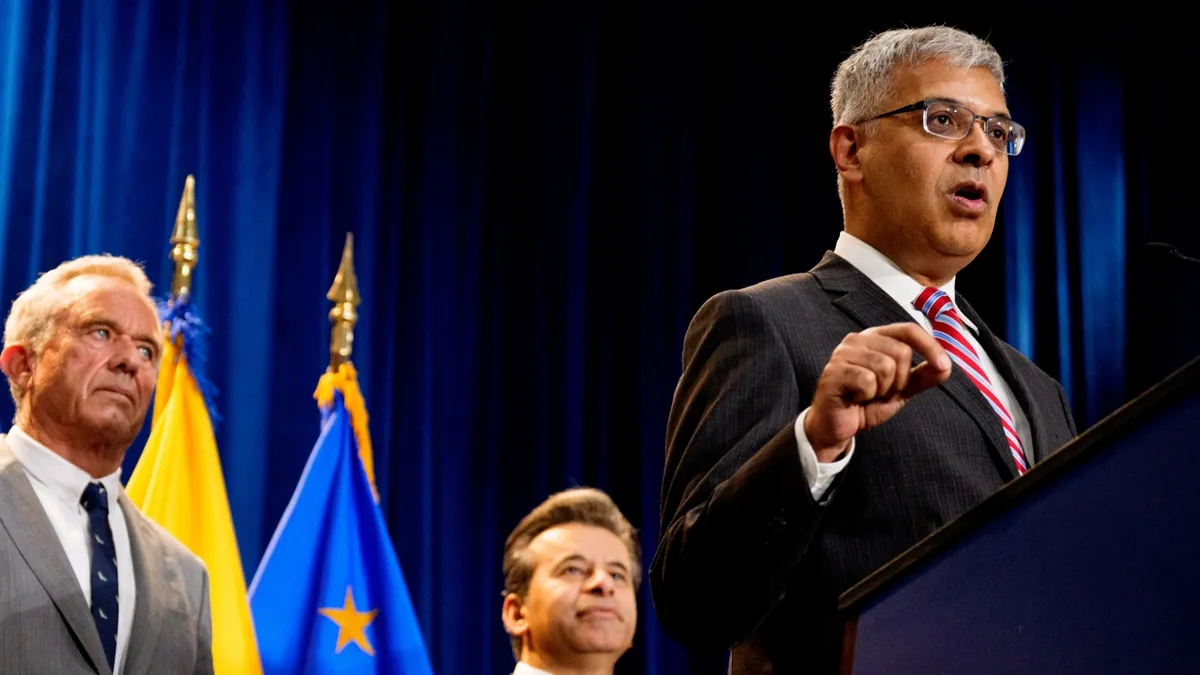
The National Institutes of Health (NIH) has announced a new initiative to collect private health records from Americans as part of a plan spearheaded by Health and Human Services Secretary Robert F. Kennedy Jr.. This controversial strategy aims to uncover both the cause and potential cures for autism. NIH Director Jay Bhattacharya shared details about this ambitious project during a recent panel discussion, emphasizing the need for more cohesive data collection in the realm of autism research.
The NIH plans to gather information from a diverse array of private sources, which includes pharmacy chains, hospitals, and wearable health devices such as smartwatches. According to Bhattacharya, the existing data resources are often fragmented and not easily accessible. He pointed out that the NIH frequently pays multiple times for the same data resource, complicating the research process. Even data resources that reside within the federal government are challenging to obtain, which further complicates efforts to conduct effective autism research.
Robert F. Kennedy Jr. has made autism research a cornerstone of his role as America's health advocate. However, his approach has been met with skepticism due to a history of conspiratorial and anti-science claims, including the assertion that childhood vaccinations may contribute to autism, despite substantial evidence disproving this notion. Earlier this month, Kennedy labeled autism an "epidemic" and declared his intention to identify an environmental toxin linked to autism by September, stating, "We're going to get back to it with an answer to the American people very, very quickly." He referred to autism as a preventable disease, further fueling debate among experts.
Recent reports from the Centers for Disease Control and Prevention (CDC) indicate a troubling rise in autism prevalence in the United States, with figures climbing from 1 in 36 children five years ago to 1 in 31 children in 2022. Experts suggest that this increase is primarily due to enhanced screening methods across a broader population. However, many experts have cautioned against attributing autism to a single root cause. Pediatric psychiatrist Zachary Warren, an autism researcher at Vanderbilt University, remarked that there may be "hundreds, if not thousands, of different neurogenetic factors" that, combined with complex environmental interactions, influence autism presentations.
Jay Bhattacharya's background in the medical community has also raised eyebrows, particularly due to his early skepticism surrounding the lethality of COVID-19 and his vocal opposition to lockdown measures. Recently, he has adjusted the timeline for the autism research initiative, indicating that preliminary results may not be ready by the original September deadline. "I would like to have a timeline within a year, where they start to put out the preliminary results or the results. We'll see. It's hard to predict how long scientists – you know, nature has its say in how long the results take," he explained, as reported by CBS.
The announcement of the NIH's autism study has sparked considerable backlash from disability advocates and privacy proponents. New York State Assemblyman Angelo Santabarbara, a Democrat, publicly criticized the initiative, stating that the move was disrespectful to those living with autism. As the NIH forges ahead with its plans, the intersection of health data collection and individual privacy remains a critical point of contention.